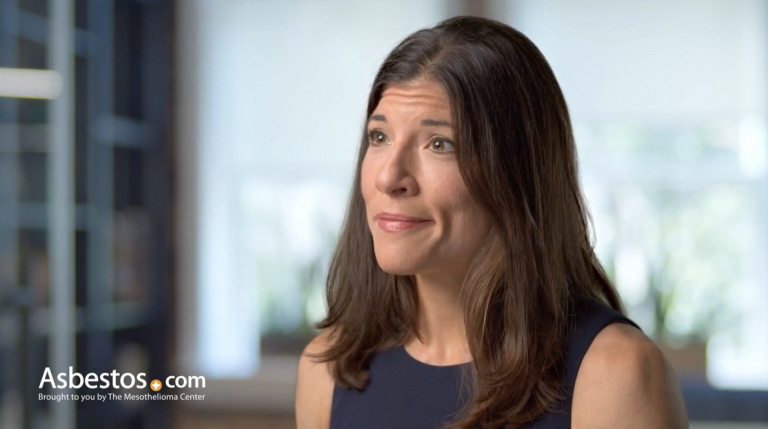Mesothelioma Clinical Trials
Mesothelioma clinical trials allow patients to try new or experimental treatments. These clinical studies recruit patients for cutting-edge therapies such as mesothelioma vaccines, gene therapy and other emerging treatments.
What Are Mesothelioma Clinical Trials?
Mesothelioma clinical trials are specialized research programs that test new therapies for safety and effectiveness. Researchers use clinical trials to investigate treatment benefits, improve screening and diagnosis methods, and uncover new disease prevention methods.
Types of Mesothelioma Clinical Trials
- Prevention Trials: Cancer prevention trials study ways to reduce cancer risk through lifestyle changes or certain medications.
- Screening Trials: These studies look for better methods of finding cancer earlier in patients, giving them more treatment options at diagnosis.
- Treatment Trials: Mesothelioma clinical treatment trials examine the safety and effectiveness of new drugs, drug combinations and procedures.
Cancer research trials can last several months to years and go through many phases. Once recruitment starts, enrollment may be paused or canceled. During these checkpoints, researchers analyze the data. If the benefits don’t outweigh the risks of treatment, the study sponsor may suspend or terminate the study early.
- There are more than 70 clinical trials actively recruiting mesothelioma patients in the U.S.
- In our 2025 survey, only 8% of respondents said they participated in a clinical trial.
- Clinical trials led to the FDA approval of mesothelioma immunotherapies.
- Many trials are available in dozens of locations across the country.
Mesothelioma Clinical Trials Actively Recruiting Patients
As of early 2024, more than 70 clinical trials across the U.S. are recruiting patients with mesothelioma malignancy. Our Patient Advocates at The Mesothelioma Center can help match you with clinical trials based on your diagnosis and where you live.
Active Mesothelioma Clinical Trials
This study examines whether intraperitoneal or intravenous chemotherapy given after cytoreductive surgery and HIPEC are effective treatments for peritoneal mesothelioma.
- Condition: Peritoneal Mesothelioma
- Intervention: Pemetrexed, Cisplatin, Carboplatin
- Locations: New York, New York
- Recruiting: September 2023 – Present
This first-in-human trial is designed to assess the safety, feasibility and potential activity of a single IV dose of SynKIR-110 administered to subjects with mesothelin-expressing advanced ovarian cancer, mesothelioma and cholangiocarcinoma.
- Condition: Malignant Mesothelioma
- Intervention: Immunotherapy
- Locations: Philadelphia, Pennsylvania
- Recruiting: April 2023 – Present
The purpose of this study is to characterize the safety and tolerability of IAG933 in patients with mesothelioma, NF2/LATS1/LATS2 mutated tumors and tumors with functional YAP/TAZ fusions and to identify the maximum tolerated dose and/or recommended dose.
- Condition: Malignant Mesothelioma
- Intervention: Immunotherapy
- Locations: Boston, Massachusetts
- Recruiting: March 2023 – Present
Patients in this study receive immunotherapy with standard chemotherapy in a surgical treatment plan.
- Condition: Pleural Mesothelioma
- Intervention: Immunotherapy
- Locations: Philadelphia, Pennsylvania
- Recruiting: January 2023 – Present
This phase 2 trial compares the usual treatment alone to using immunotherapy plus the usual treatment in treating patients with peritoneal mesothelioma.
- Condition: Peritoneal Mesothelioma
- Intervention: Atezolizumab, Bevacizumab
- Locations: Chicago, Illinois
- Recruiting: March 2022 – Present
This study tests the safety of MSLN-targeted CAR T-cells to find the safest dose to give to people with malignant pleural mesothelioma. It is the first study of its kind in people.
- Condition: Pleural Mesothelioma
- Intervention: CAR T-Cell Therapy
- Locations: New York, New York
- Recruiting: October 2020 – Present
This study examines the safety and effectiveness of poly-ICLC directly injected into malignant pleural mesothelioma during biopsy before the surgical removal.
- Condition: Pleural Mesothelioma
- Intervention: Poly-ICLC (Hiltonol) Vaccine
- Locations: New York, New York
- Recruiting: August 2020 – Present
In this study, researchers will give olaparib to mesothelioma patients who have specific changes in their DNA (known as gene mutations).
- Condition: Pleural Mesothelioma
- Intervention: Olaparib
- Locations: Chicago, Illinois
- Recruiting: February 2021 – Present
These clinical trials span many mesothelioma treatment options, including emerging treatments such as gene therapy and vaccine therapy, advancements in immunotherapy, surgical procedures and new chemotherapy approaches. Testing new combinations of techniques helps researchers find new or improved methods of treating mesothelioma that offer significant benefits without substantial risk.

Connect with trusted specialists who truly care about your health. Get fast, stress-free appointment help.
Find a Doctor NowHow Do I Enroll in a Clinical Trial for Mesothelioma?
You can enroll in a mesothelioma clinical trial with help from our Patient Advocates or your doctor. Mesothelioma specialists generally know which clinical trials their patients may be eligible to join. Cancer centers and clinics participating in research trials typically have staff dedicated to running clinical trials.
If you meet eligibility requirements, a research coordinator may contact you. Every mesothelioma clinical trial has specific criteria for who is eligible to participate. Some trials are only for patients who have yet to be treated or have metastatic disease, while others are for those who didn’t respond well to standard treatments.
Along with eligibility requirements, frequent blood and imaging tests are a standard part of clinical trials. These extra precautions ensure that you’re eligible for the study and that the experimental treatment won’t cause additional harm.
After you talk to your mesothelioma doctor or a Patient Advocate, take the time to determine the trials that most appeal to you. Review and discuss the research trial information with your family. Ask your doctor as many questions as necessary to understand the risks and benefits of the trial. Once you decide, your medical team will help you begin the screening process.
How Mesothelioma Clinical Trials Can Help Patients
Mesothelioma patients may benefit from new emerging treatments or advanced approaches tested in clinical trials. Trials may help improve their prognosis and quality of life. These therapies may not be available through standard treatment options, making clinical trials a valuable resource for mesothelioma patients.
Experimental drugs, for example, can provide a targeted approach to treating cancer. These drugs target specific proteins or pathways in cancer cells, attacking specific pathways involved in tumor growth and spread.
Clinical trials may offer patients the chance to receive a combination of experimental therapies. Some of these combinations have proven effective in early studies. This approach can be particularly beneficial for mesothelioma patients, as a multimodal therapeutic approach often yields the best outcomes when treating this cancer.
Mesothelioma Clinical Trials Improve Survival
Sometimes, a mesothelioma clinical trial results in a breakthrough, which can change the way doctors approach cancer treatment. For example, research studies led to FDA approval of the first mesothelioma chemotherapy option and the more recent Tumor-Treating Fields. The trial results that led to FDA approval showed improved overall survival over 6 months.
Although there is no cure for mesothelioma, successful clinical trial therapies improve survival rates and quality of life. Many mesothelioma trials struggle to get enough participants to test a new drug or treatment. Joining a trial helps researchers get closer to developing a cure for mesothelioma.
Are Clinical Trials for Mesothelioma Safe?
Clinical trials for mesothelioma always involve certain risks. The experimental treatment may not be as effective as anticipated, and you could experience unexpected side effects that harm your health.
- Experimental Treatments: Researchers and clinical staff perform frequent testing and check-ins to minimize harm during the trial.
- Travel to Trial Center: Clinical trials may not be available in your area, and travel may be difficult. Patient Advocates and treatment centers can arrange transportation for you.
- Unknown Benefit: In some cases, experimental therapy may provide less benefit than traditional treatment. When this occurs, researchers quickly end the trial.
A mesothelioma clinical trial can last weeks, months or years, depending on the trial’s goal, the number of patients involved and the results. During this time, doctors and researchers work to maximize benefits and minimize risks. Clinical trials go through multiple phases to ensure a new treatment is safe and effective for a large population.

Explore active mesothelioma clinical trials that could change your future.
Get StartedQuestions to Ask Your Doctor Before Participating
Getting answers before enrolling is critical. Take notes when you meet with your doctor. It’s important to understand the details and purpose of the mesothelioma clinical trial.
- What is the specific goal of this trial?
- Are there other treatment options I should consider first?
- What are the costs?
- What are the possible side effects?
- Will I need to change my usual medications or routine?
Don’t be afraid to ask any questions you or your loved ones may have. Follow up with your doctor’s office or clinical trial staff if you think of other questions or need clarification to help you decide if participating in a clinical trial is best for you.
Common Questions About Mesothelioma Clinical Trials
- How do I find out about mesothelioma clinical trials?
-
You can learn more about mesothelioma clinical trials from your doctor and at ClinicalTrials.gov. A Patient Advocate can also help you find available clinical trials that match your specific diagnosis.
- Will I have to pay to participate in a mesothelioma clinical trial?
-
Many clinical trials cover all or part of the therapies used in clinical trials, but each trial varies. Health insurance often covers specific treatments, such as traditional chemotherapy.
- Are placebos used in cancer clinical trials?
-
Placebos are not common, but they are sometimes used in cancer trials in combination with conventional treatment, experimental treatments or when no conventional treatment exists. Researchers are never allowed to withhold necessary medical care intentionally. Participating in a clinical trial will benefit you with high-quality medical care.
- Can I withdraw from a mesothelioma clinical trial?
-
Yes, it’s always a patient’s right to withdraw from a clinical trial. Patients should provide “written informed consent” before participating in a clinical trial. The trial documentation should describe the right to cancel and how to withdraw. It may be most helpful for research if someone who withdraws from the trial treatment and tests continues to allow follow-up, for example, of side effects and length of life.
Answered By: Anna Nowak, internationally renowned asbestos researcher and mesothelioma advocate




